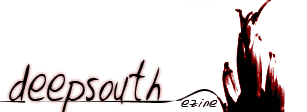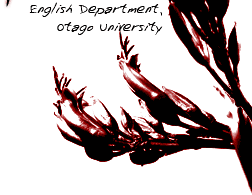Tanure Ojaide’s poetry presents multi-layered themes and dimensions, but its cardinal concern is the suffering of the underprivileged, the defenseless targets of the depravity of government. The “Fate of Vultures” is inundated with uncontrollable fury at the immorality of government. The tone employed by Ojaide in “The Fate of Vultures” is metonymic and satiric, using sarcasm and comic satire to criticize the Nigerian social system.
Overwhelmed by the seductive antics of the rulers, the poet appeals to his memory god to help rescue the situation:
O Aridon, bring back my wealth From rogue-vaults; Legendary witness to comings and goings, Memory god, my mentor, Blaza an ash-trail to the hands That buried memories in the bowel Lifted creatures of cash into their closets (The Fate of Vultures: 11)
The government is heavily censured in the poem. It ends on a firm note:
Pity the fate of flash millionaires If they are not hurled into jail, they live In the prison houses of their crimes and wives And when they die, of course, only their kind shower praises on vultures (12).
Femi Fatoba’s “Petals of Thoughts” also belongs to this tradition. “The Politician” and “The Return of the Politicians” exhibits an aura of suspicion. Like Ofeimun’s poetry Fatoba’s also doubts the sincerity of politicians. Similarly, the poems in the collection capture the conflicting agenda of the rulers as the masse’s state of despair deepens.
He says: He is in search of light Yet light was never lost He says He is looking for the truth But he cannot face reality … (36).
The tone of the poem exhibits faithlessness in the new crop of rulers due to their chicanery and the cheeky postures they maintain. For these politicians, integrity counts for nothing. “The Return of the Politicians, like Ojiade’s “Fate of Vultures”, appeals to the lord for strength and shield against the incinerating inclinations of the regime. The inanity of their intention is encapsulated in their policies which heavily demonstrate their impropriety:
Open again Is the floodgate Of words Eel-tongues, spittle and dribbles A cacophony of promises Lord give us the strength to deliver ourselves When politicians harvest our taxes. And sow his ignorance in our minds. If deceits fury axe should split The isolated tongues of stones and let not our women folk ever again deliver into ballot boxes
Funso Aiyejina’s “And so it came to pass…” carries a tone of lamentation as “our saviours gave us gift of tragedy/for which we are too dumb-struck to find a melody” (A Selection of African Poetry: 316). The fears of the poets is aggravated because they know too well of the ruination of the people’s hope during the first republic. Aiyejina, according to Ezenw-Oheato is “a threnodic poet” (322). His threnody has a positive aspect because it politicizes the numerous tribulations that have engulfed the country at certain periods of existence. The poem confirms the fear of a catastrophic future.
Niyi Osundare’s poetry leaves a space for the oppressed people in society. Funso Aiyejina describes him as “The fulfilment of the public poet, the town crier briefly glimpsed in the Okigbo of Path of Thunder” (124). Niyi Osundare’s artistry hinges on the politics of revolutionizing of society. As he identifies with the people he creates vents to satirize the politicians for their statelessness. Osundare’s poetry carries the readers through different social spheres in Nigeria and Africa, giving us a cinematographic account of the situation. Through the different techniques he employs he defies linguistic limitations as he makes his stunning artistic statements. For example, in “The Nigeria Railway” one need not actually read the poem to discern the poet’s thematic concerns. Like Agira’s, the typographical arrangement of the poem articulates its thrust:
Darksnaky structures
tortous
milli
pede on
legs
of irion
crawling
wearily
fromswamptosavannah (30). The poem unequivocally emphasizes not only the languid and laggard character of the Nigerian Railway Corporation but the words are deliberately fractured to mirror Nigeria’s social system. In “Excursions” (7), “Sule Chase” (16), and “Siren” (21), the poet makes explicit the asymmetry of Nigeria’s social configuration. Through this technique he lays the incongruities of the social relationship between the masses and the organizers of labour bare. In “Udoji”, Osundare satirizes government’s hypocrisy over the reckless waste of wealth, a travesty of the yearnings and aspirations of the deprived masses:
we ask for food and water to keep our tiring frames on the hoe but they inundate us with udoji now pockets bursts with arrears but market stalls are empty gari is dearer than eyes a naira cannot buy a yam. When a bribe is too heavy It impoverishes the giver (35).
In “Siren” one notices a marked withdrawal of the politicians away from their employers, the masses. They are barricaded within the very commonwealth they have deprived the people from possessing. Osundare brings the ruled and the rulers together in the poem, yet the remoteness of the government is conspicuous even in the midst of the masses:
Siren siren siren the clangorous convey of powers and power brokers conditioned in Mercedes back far, very far, from the maddening crowd (21).
The present democratic government of Olusegun Obasanjo continues to fail in all endeavours. His posture as a redeemer cannot stand examination. The President, like his military precursor with whom he shared his tutelage, declared an anti-corruption campaign. Some two years in a row the country ranked highest in international halls of infamy as the most corrupt nation in the world. Hope Eghagha’s “Rhythms of the Last Testament” is a graphic representation of the deception and stupidity of the present Nigerian government:
A fresh lunatic arrives restless with unfathomable delusions he gathers new garbage tins, pans, buckets, polythene bags enmeshed in new filth squats on the floor his coming is like the previous loud in ovation, puny in action. but he is the baale of the arena give him palm oil for blood your blood will be the blood this is the last testament … (Rhythms of the Last Testment: 8)
It is Africa’s disillusionment with its independence that has set the continent in a series of contradictions. The failure of the dreams of independence continues to haunt Africans as the continent wobbles, unstable. Tayo Olafioye aptly captures the hopelessness of the African continent in “Birthday Card of my Country:”
Nothing works; In the burning house of insufficiency Headquarters of ding dong affairs. The moral ozone, the canopy of fair rectitude Blazes to ashes and thin layers A rainbow without its colours Snails lost in the toxic deserts Eagles without feathered propulsion Lost height in the toxic wind Instead, we sight trails of glow Behind the comet of stench Under it, we stand silhouetted In the colour of pink. We cannot hear the clamors of our grief As we search blind folded, for Pathways out of our grove (The Parliament of Idiots: 42)
These poets capture the prevailing reality of their times; what is remarkable about them is their unpretentious and uncompromising boldness and the vibrant expressive spirit with which they try to articulate the African predicament. The poems invariably become graphic descriptions of the morbid transitional phases of Africa’s social, political and cultural life, life-sourced in the very turbulence of the African continent.
page 1 2 3 4 5 6

